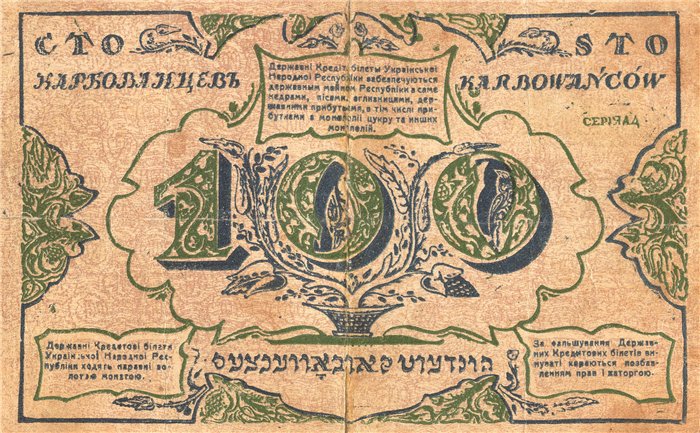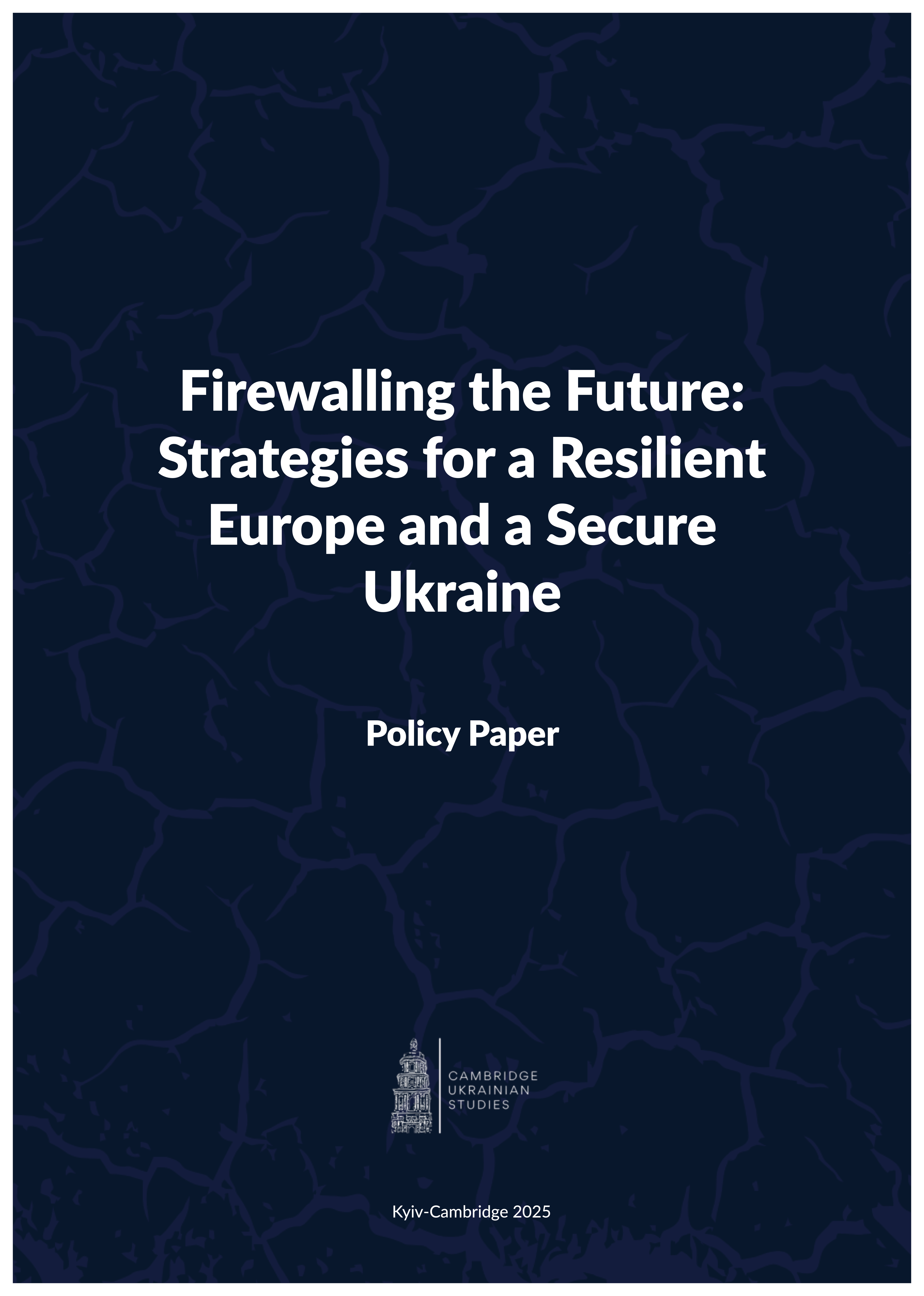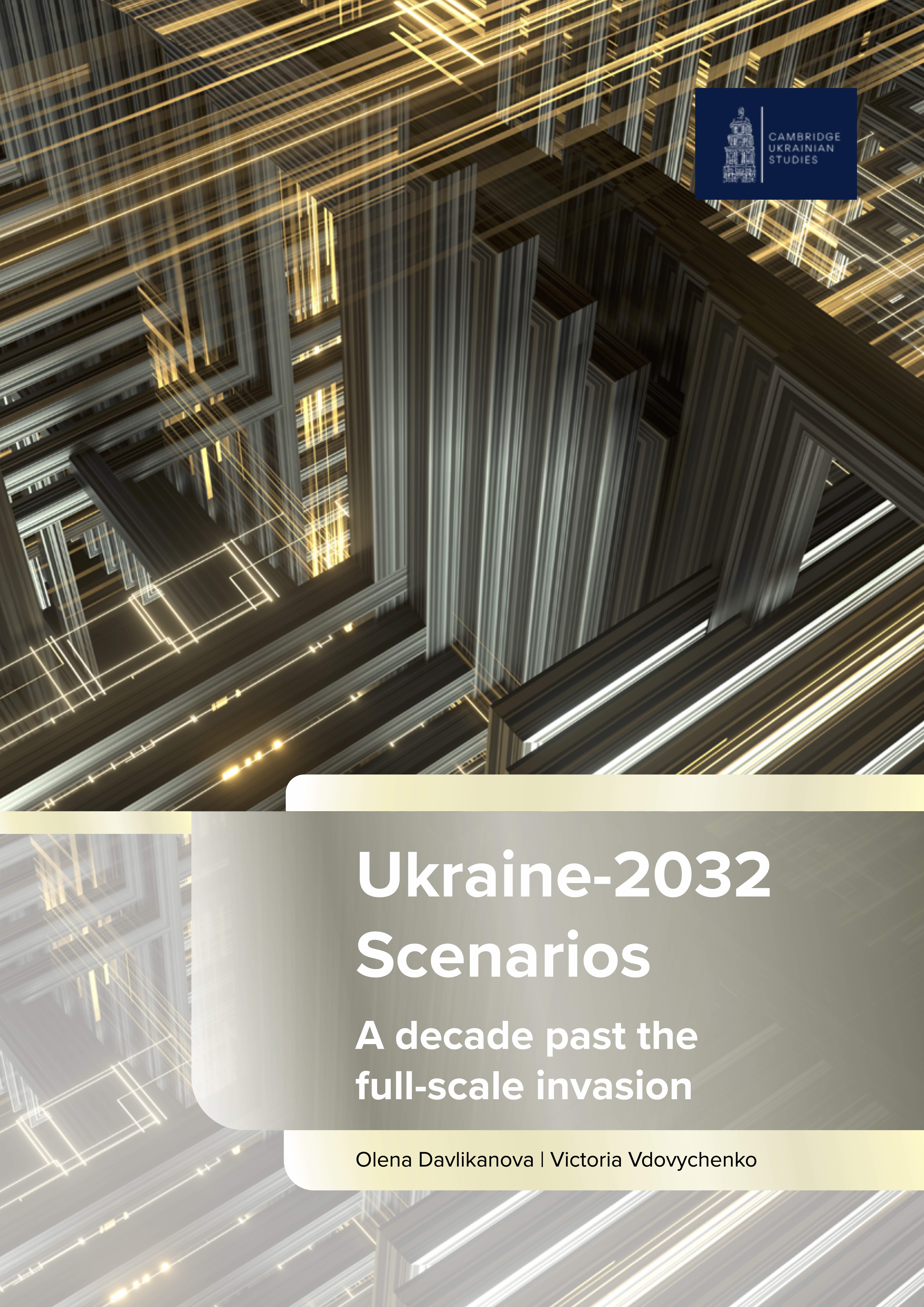
Russia's full-scale war of aggression against Ukraine has led to the greatest crisis in Europe since the Second World War. In this context, �������� Ukrainian Studies has launched the Future of Ukraine initiative with the �������� Centre for Geopolitics. The programme is led by Dr Victoria Vdovychenko, BA CARA Fellow at the ��������, and Rory Finnin, Professor of Ukrainian Studies. The Future of��Ukraine initiative seeks to increase global understanding of Ukraine’s strategy of victory and to challenge conventional mental maps in the study of European security.
Publications
�ٴǷɲԱ��Dz�����Firewalling the Future: Strategies for a Resilient Europe and a Secure Ukraine
�ٴǷɲԱ��Dz�����Ukraine-2032 Scenarios: A Decade Past the Full-Scale Invasion��
�ٴǷɲԱ��Dz�����Winning the Future: Strategies for a Resilient Europe and a Secure Ukraine��
Crimean Tatar Studies Initiative

Ahatanhel Krymskyi noted that ‘a complete, multi-sided history of Ukraine is impossible’ without a knowledge of the Crimean Tatars. Yet in geopolitical debates and in academic discourse, even in the field of Ukrainian Studies. In 2016, �������� Ukrainian Studies launched a Crimean Tatar Studies Initiative, which began with a first for Europe: .��
Power of the Lyric in Ukrainian Culture
Since its inception, �������� Ukrainian Studies has sought to understand the social and political power of the lyric in Ukrainian culture, and particularly in the emergence and evolution of the modern Ukrainian national project. Its focus has since broadened significantly, from publications by Rory Finnin to doctoral studies (Bohdan Tokarskyi) and , particularly in verse confronting the trauma of war (Iryna Shuvalova).

In outreach and editorial commentary, Rory Finnin has sought to address and representations of Ukraine in Great Britain and Europe more generally. �������� Ukrainian Studies has accordingly confronted these issues through postgraduate workshops and lectures on Ukrainian media discourse as well as the landmark international conference , which��explored the dynamics between the politics of representation and international security through the lens of the geopolitical tumult in Ukraine. Two doctoral research projects are now exploring media discourse in and about Ukraine, with special attention to��media discourse��in occupied Ukraine (Jon Roozenbeek) and to Ukraine's digital civil society��(Maria Terentieva). �������� Ukrainian Studies has also launched a new initiative called Ukraine Media Lab, which seeks to devise innovative, portable curricula to educate students and the general public about disinformation and 'Fake News'; Ukraine's digital civil society; and the Ukrainian Internet. With Dr Sander van der Linden, Finnin also launched the , which seeks to bring cutting-edge research to bear on contemporary policy discussions and to foster closer collaboration in the sphere of information literacy between scholars, policymakers and stakeholders in journalism, education, business and diplomacy.

100 karbovantsiv note of the Central Rada��of the Ukrainian People's Republic (1917): in Ukrainian, Russian, Polish and Yiddish
Rory Finnin was a Co-Investigator in the landmark project , which was funded by a £3.2 million grant from the AHRC. The initiative undertakes a study of cultural texts and events – narrative fiction, poetry, theatre, cinema – that foreground, problematise and inform questions of linguistic unity, diversity, identity, power, and quality of life in the public sphere, particularly in Ukraine. It asked:��
- How do cultural events and works of literature, film and theatre contribute to understandings and misunderstandings about the place and function of languages in culture in Ukraine?��
- How does linguistic diversity in Ukraine bear on regional and national identities and communities affected by colonial pasts, particularly in the realm of culture?��
- How does multilingualism figure in conflict and conflict resolution both intra- and internationally?��
Rory Finnin was which was awarded €1 million by the HERA consortium.��The��interdisciplinary,��multinational initiative warned that the often subterranean cultural trafficking of traumatic memories along the��eastern border of the European Union, particularly in Ukraine,��could contribute to the political destabilization of Eastern Europe. It��involved academics in ��������, Groningen, Bergen, Helsinki and Tartu and advanced a��pioneering methodology to map 'memory��events'��across a host of literary, filmic, historical and web-based texts��in real time. Among the project’s publications was by Alexander��Etkind, Rory��Finnin et al (��������:��Polity Press,��2012), which was hailed by Jay Winter (Yale) as 'a rare example of collective scholarship’ and��'essential reading for all students in the social sciences and the humanities.’





